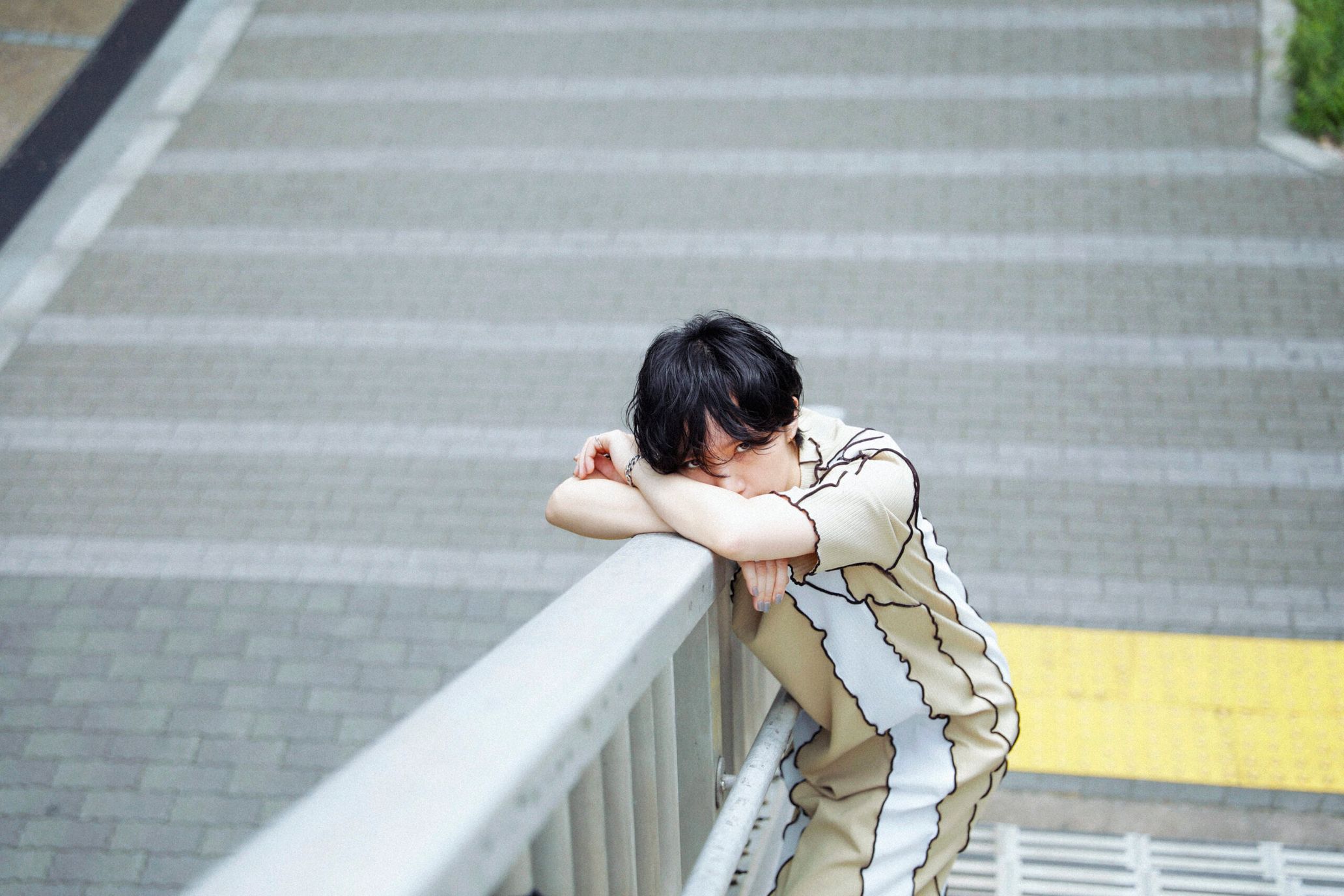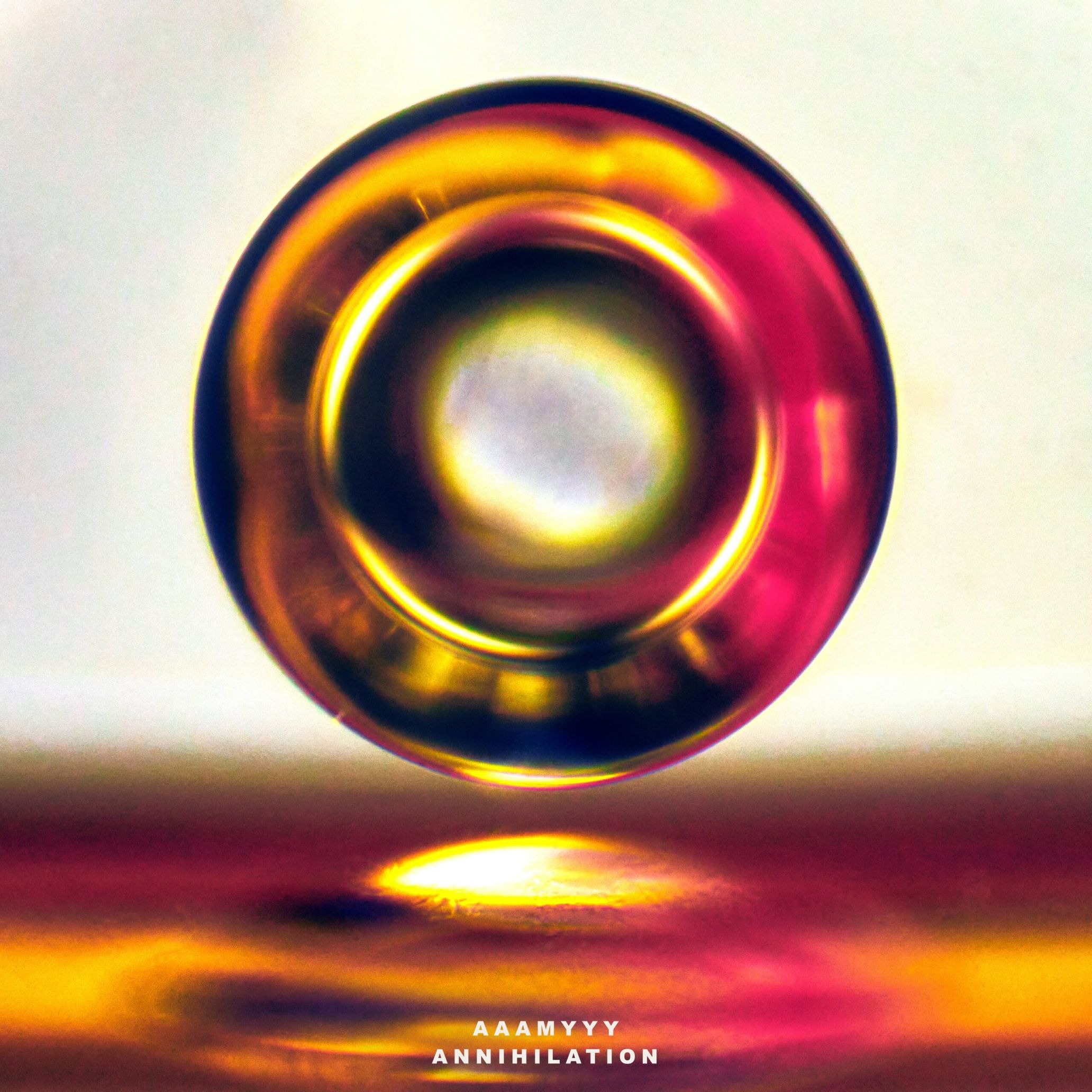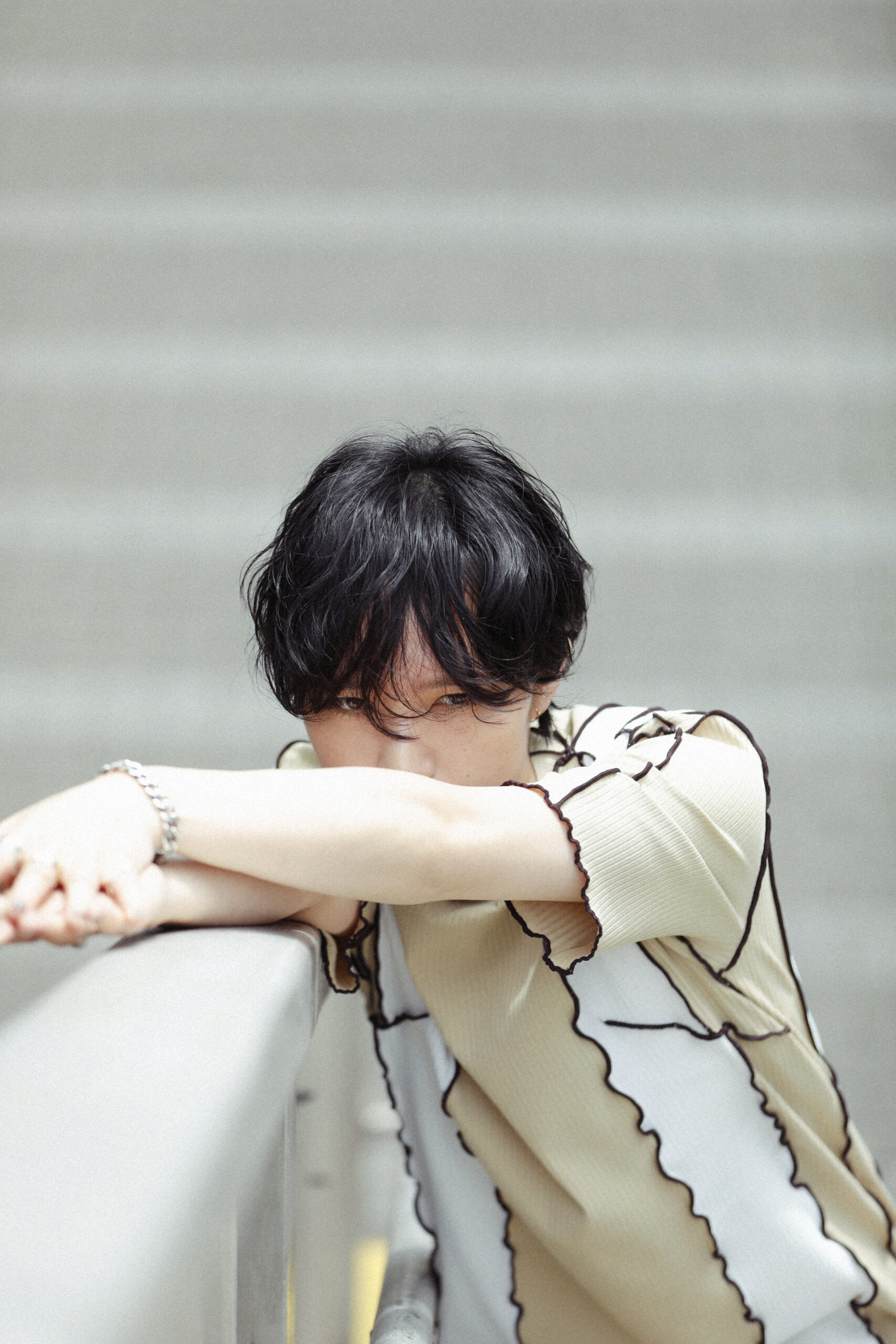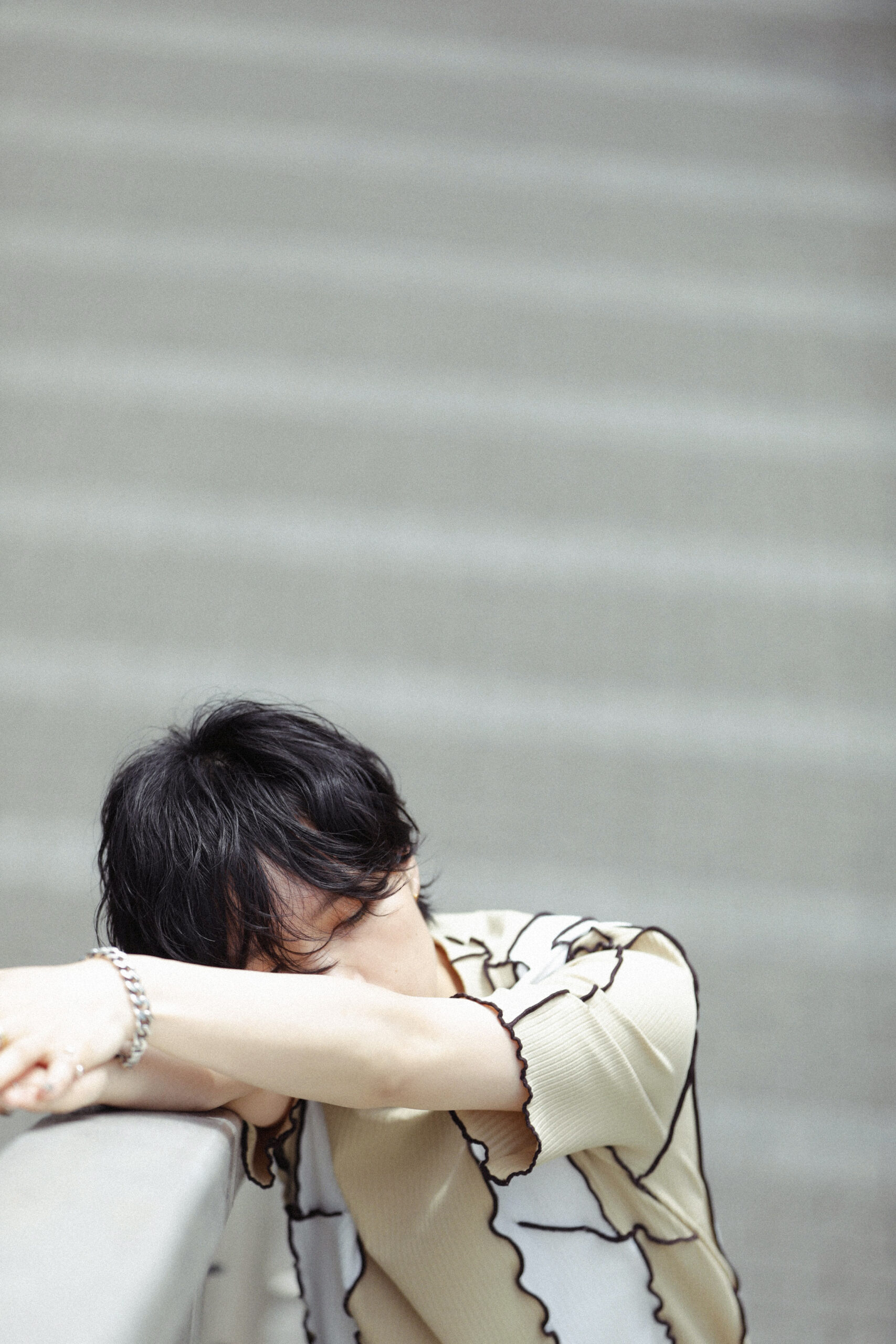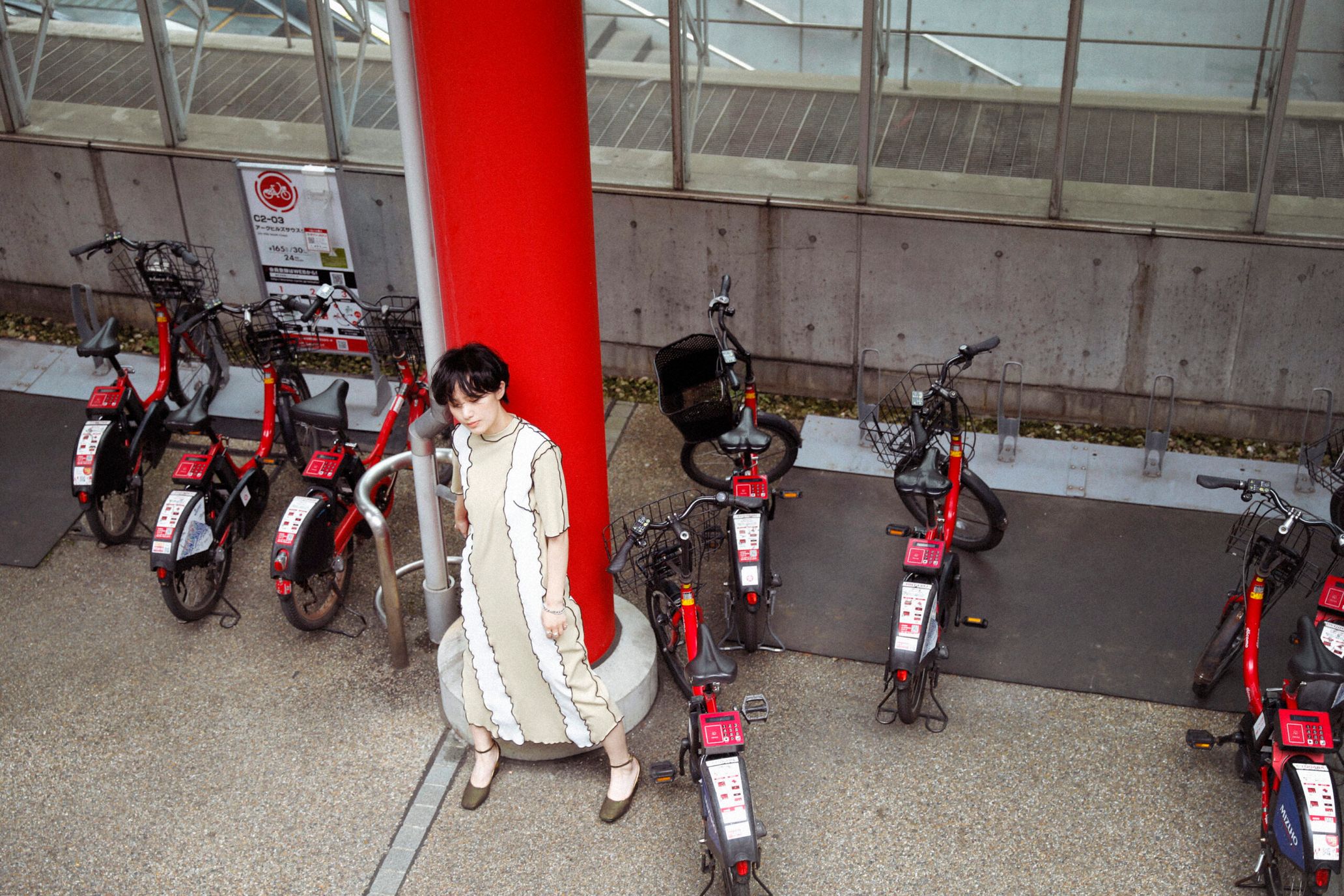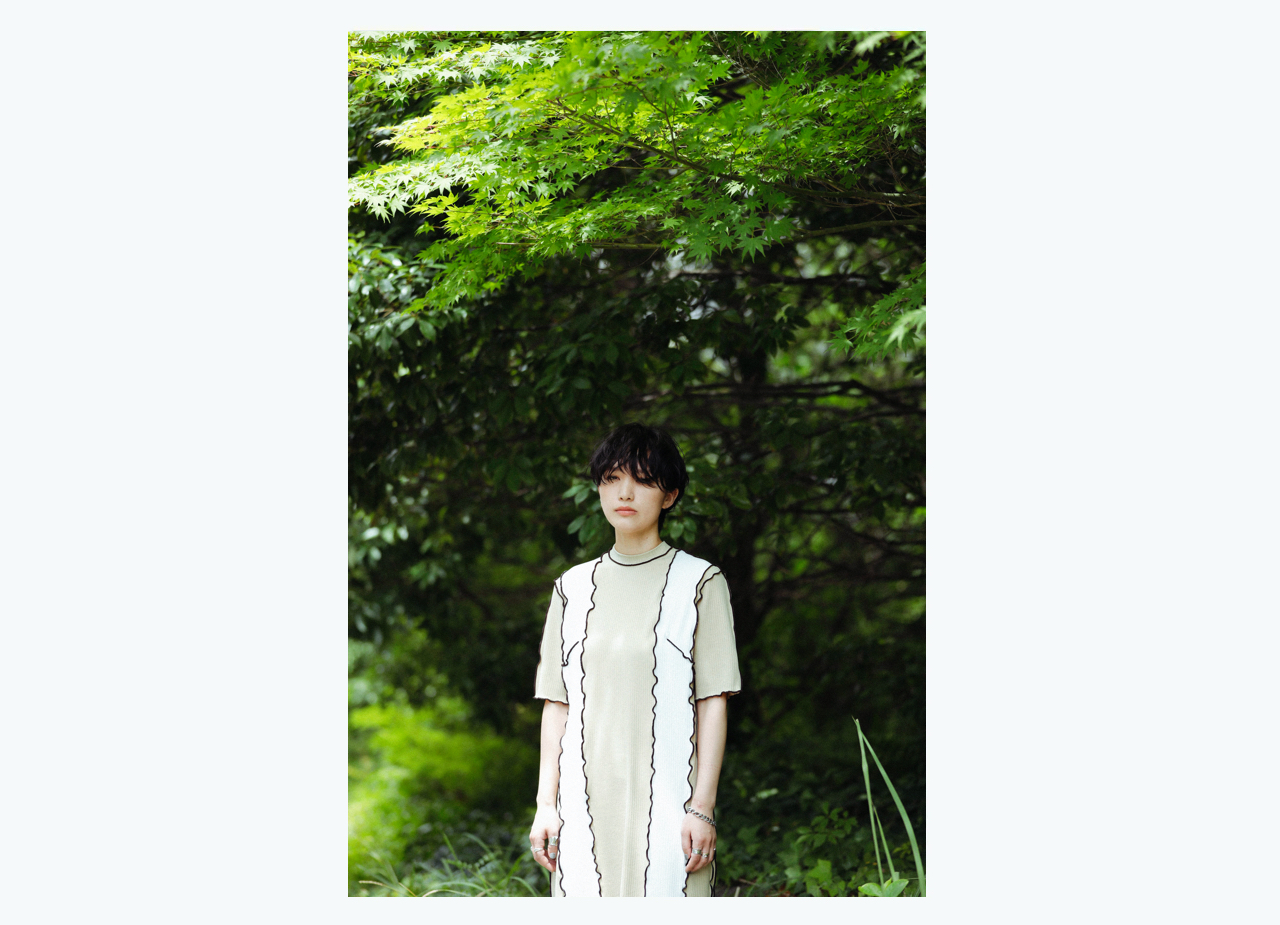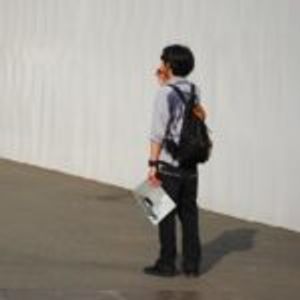As a singer/songwriter and trackmaker, AAAMYYY started her career in 2017 and officially joined the band, Tempalay, in 2018. She has also been active in a wide range of fields such as playing in a backing band to TENDRE and Ryohu (KANDYTOWN,) modeling, providing songs, and singing on commercials.
In February 2019, she released her first full album, BODY, and paved her way into the scene with her unique musicality. She is now releasing her long-awaited second album, Annihilation.
The newfound values she has discovered from confronting herself throughout 2019 and 2020, are woven into her new zealous album. While being in the vortex of various events and thoughts spawned from her experiences with Tempalay, the coronavirus pandemic, social media, and trying to define her ideal self as an artist, she seeks to find out “who she really wants to be” and experiments her transformation through this album.
It’s like my fundamental notions of what’s right or wrong have completely annihilated from the pandemic
ーーThis is your second full album following BODY released back in February 2019. What kind of context or direction did you take for the album?
AAAMYYY (Hereinafter AMY): I didn’t set up a clear concept, and I just put in my sentiments I had been harboring all through 2019 to 2020 and my thoughts affected by the world’s circumstances. I was reminded that my emotions are best construed through music.
ーーDuring the time frame (from 2019 to 2020,) what kind of thoughts or feelings did you have?
AMY: Around March 2020, the pandemic started and there were almost no gigs happening. I was lost not knowing what to do and feeling empty….
I did have some positive thoughts of wanting to write songs or seeking to try new things, but concurrently, I was tired of social media, and how I couldn’t see people in person was damaging me mentally…. Anyway, it felt like my fundamental notions of what’s right or wrong was being completely annihilated.
ーーAnd can you tell me about the fundamental notions you had before?
AMY: It’s probably a Japanese people’s thing, but I used to believe in the aesthetic of working hard until you burn out, constantly elevating myself, and challenging something new.
Before Covid, those notions served as a basis for my goal and a motive to look cool and improve myself, but now they had entirely swept away.
ーーSo if Covid has never happened and you lived your life the way you had always lived, do you think you would still have the same mindset from before?
AMY: Yes. The entire world had to go through this unprecedented peril, and it gave a chance for not only myself but for everyone to change. I think it especially made the people, who have been living a job centered life, see the things that have been restricting their lives.
ーーDo you also think there has been a shift in the relationship between you as a musician and your listeners?
AMY: Yes, I think so. Before, when I spoke my thoughts out through my records and actions like, “these social systems are messed up,” a part of me thought hopelessly, “I guess it’s not that easy to reach out to people and get my voice heard.” However, since the pandemic, as people started thinking more seriously about what’s truly important for them, I felt my thoughts were finally being heard for the first time ever.
ーーSo would you say that experience also led to the title of the album, Annihilation?
AMY: I guess it can be interpreted that way. The title actually comes from the idea of self-consciousness. I was aware that I had different sides to myself that were born from worrying about what others think of me and wanting to become a certain type of person.
ーーSo, it’s like you weren’t being honest with yourself.
AMY: Like, one part of me was quiet, but another part of me was different and wanted to go frolic, have fun, and laugh more. It’s an image of my different personalities battling with each other and being annihilated in the end.
――Was there a certain experience that made you feel that way?
AMY: Yes. One of them was my experience with Tempalay. Originally, the members weren’t that close to one another, but we deferred one another and respected our own characters. We had been taking a stance of not saying much to one another, but instead, we tried to read one another’s minds during our creative process. Though, since the outbreak of Covid, our communication has dwindled even more. Post-show parties were crucial to the band and not having those anymore has affected us a lot.
――I feel you. Having less chances to say what you want would leave you with no choice but to bottle up your emotions.
AMY: Covid may merely be considered as a force majeure, but because of it, for the first time, we’ve experienced ourselves being on the brink of self-destruction and realized how shallow our communication has been. For example, Ryoto [Ohara] isn’t technically a leader, but he’s been harboring a sense of responsibility to get the group together. He actually didn’t want to, but I think he convinced himself and made himself responsible for it. The rest of the members including me, weren’t seeing what he was going through and simply thought that he was being what he wanted to.
We were actually seeking to compassionately and warmly communicate with one another and have a great social life together. After going through the pandemic, we were finally able to understand one another and enhance our relationship.
ーーSo the negative circumstance brought you a chance to become more positive.
AMY: That’s right.
Specific words need to be used in songs or else they would sound like a fantasy tale and be hard for listeners to imagine
ーーYou were saying your emotions, experiences and changes from before and during the pandemic are reflected in your latest album; in fact, I can feel them from the very beginning of the album.
AMY: The first track, “Elsewhere,” was written before the pandemic, which was a time I was feeling really anxious. I couldn’t tell whether I was depressed or angry and couldn’t define the cause, and occasionally, I had this feeling of wanting to escape somewhere.
ーーThat’s very stressful.
AMY: When I was on tour with Tempalay, even though we were traveling together in the same car, it felt like we were each living in a different world. Back in the old days, we used to play the warewolf game and had so much fun together. And when we talked to one another on LINE, we had this tacit rule that we were all good if the text was being ‘read.’
It’s not only about the relationship with the guys, but the song conveys depression that comes from superficial relationships. And of course, it also portrays about the world’s circumstances.
ーーSo, the ideas of the song came from your feelings in your daily life and the social news.
AMY: Correct. There’s a part in the song where I sing, “Breathe and forgive me, Porsche,” and this reflects my feelings from back when I used to work part-time at a gas station. Because it was in a wealthy neighborhood, there were a lot of rich customers, and the cab drivers frowned when they heard a sound of a loud engine from a high-end car. But the drivers of the high-end cars never cared about the cab drivers. I felt a fragment of the society from witnessing such moments.
ーーUsing pronouns like “Porsche,” I think it helps listeners envision what you are particularly trying to portray in the songs. Is this intended?
AMY: I thought the lyrics would sound like a fantasy tale and be hard for people to picture if I didn’t use specific words in the songs. Like in haiku, kigo (season words) is used to evoke a particular season or place and deepens the listeners’ interpretations as well as to bring back their personal nostalgia. There are some parts I deliberately use specific words to convey in such way.
ーーThough, you’re not making the songs entirely specific and it seems like you leave some ‘blank spaces’ as well.
AMY: For the song “PARADOX,” the middle part of the lyrics is in English. It might be hard to notice if you only listen to it once, but that’s fine with me. At times, there are messages in the songs that are quite presumptuous of me. I just didn’t want to sound cheerful saying something like, “let’s have fun!” I just hope the song will make listeners feel immersed.
ーーWhat are the thoughts and emotions you had when writing the song “PARADOX”?
AMY: I had been living life thinking that I should look tough on the outside, when I was actually weak on the inside and had to show my weak side or else, I’d be destroyed—The song portrays such paradox.
There’s a part in the song, “If I lived without knowing any pain, all the things I made obscure will come bouncing back at me”—If you don’t act to become what you want to be, I feel like in the end, you’ll be receiving divine intervention.
ーーWas there a certain experience that led you to think that way?
AMY: When I was writing this song, I was living in a Japanese style room. It was normal for me, but people told me things like, “you don’t look like a type who lives in a Japanese style room,” “I didn’t think you’d cook” or “you’re actually chill when you talk. I was surprised because you don’t look the way you talk.” There was a huge gap between the way I saw myself and the way people saw me. I felt misunderstood.
ーーI see. Dos Monos’s Soshiit is featured in the song “Tengu.” Why did you decide to have him for the song?
AMY: I’ve known him for a long time. He’s good at explaining complex things, observing the society, and creating fun twisted things with a rebellious heart.
During the time I couldn’t see anyone at all, I was reading online news and people’s interviews. I read an interview article of Dos Monos talking about their stance on an artist, and I was really struck by it.
This song is about becoming someone you don’t want to be. But, since it’s a hopeless song, I couldn’t do it alone and needed to infuse someone else’s energy or else it would turn into a deeply negative song. So that’s why I joined Zozit for the song.
ーーWhat kind of direction did you give Soshiit?
AMY: The demo track and the lyrics were ready, so I picked up a part where I wanted to put rap and asked him, “can you freely rap for this part?”
――Did you tell him about the theme of the song, “becoming someone you don’t want to be”?
AMY: I had him listen to the song then he came up to me with questions like, “is this based on true event?” “Is this about yourself?” “Is this a confession?” So, I told him about my thoughts.
ーーHow did you come up with the title, “Tengu”?
AMY: Basically, it’s about becoming like a Pinocchio. At a certain time, I was questioning myself, “we’re pretty much becoming a Tengu (becoming arrogant.) But is that what we really want to be? No, no way.”
There was a time, I saw myself becoming a bitch to become who I want to be. And I was frustrated with the fact that I couldn’t stop myself from becoming what I don’t want to be, so this song turned into a confession putting out my ugly side.
ーーIt seems like this song is not only for artists, but it also speaks for the world. People seeking validation through social media and their self-esteem being destroyed is something we see happening everywhere in society.
AMY: I guess so. I once talked about something similar with my friend, Sharar Lazima. She’s a Bangladeshi writer and model and raises identity issues as a model donning makeup like that of a white person.
She was saying that in the world of models and creators, there are too many people who became popular although they don’t have a core, and they’re left with no choice but to keep faking their way through. Of course, it’s you who decides who you want to be. But I want to be honest with myself and do what I think is good.
Although my ability is limited, I’d rather die expressing what I want than die without doing so
ーーFrom what you’ve told me so far, it seems like this album is fully exposing your true self.
AMY: It was my first attempt ever to put myself out this far. Before, all I’d been thinking was to dress or present myself in a particular way to show people who I am.
Honestly, I grew tired of making myself up and trying hard to maintain that. And I’d realized that if I kept being that way, I would eventually lose my true self and suffer. So, I’ve decided to just let myself out and be like, “let’s do this!” [laughs].
ーーBut, it’s definitely not an easy thing to face what you don’t like about yourself.
AMY: But if you keep lying to yourself, like in “Paradox,” those lies will eventually come bouncing back at you. Even if it hurts, you need to get rid of the pus before it turns into a large tumor.
ーーIt seems like your perspective of life and death has also been reflected in your music. Would you say it’s mirrored in your new album as well?
AMY: Yes. Someone I’d been close to had passed away recently, and I see more people getting hurt from being disparaged on social media. But even under such circumstances, I want the world to have hope. My ability is limited, but I’d rather die expressing what I want than die without doing so. I had such thought when writing this album. The feeling is also etched in the song, “AFTER LIFE.”
Music video of “AFTER LIFE”—one of the songs in the new album
ーーThe new album is a personal piece that shows and expresses your true self. Afterall, what did you glean from the album?
AMY: I feel like I’ve been able to break out of my shell. I guess you can also say that I’ve been unmasked, though it’s more like I had no choice but to project myself into the album. And my thoughts couldn’t be expressed through any other means like social media or talking to my friends, and it just had to be through music. If I didn’t vent out my emotions, I would be imploded by now.
ーーIt would be exciting to find out the listeners’ reactions to the album. I think they will be taking your songs personally.
AMY: I’m sure some people will be shocked. Before, I’d been making songs mostly on my own, but this time, I had someone else play the guitar and the bass and help me with the beats, and so there was a lot of interaction with people for this album.
Even those people haven’t heard the album yet, so honestly, part of me is still not satisfied. So, I think I’ll be able to break out of my shell completely once my friends and listeners hear it.
AAAMYYY
Singer/songwriter and trackmaker. In 2017, she started her musical career as a solo artist under the alias, AAAMYYY. In June 2018, she officially joined Tempalay; she continues to attract attention with her wide scope of activities including playing in a backing band to artists such as TENDRES and Ryohu from KANDYTOWN, collaborating with diverse artists, modeling, providing songs, and singing on commercials. She released her first album, BODY, in 2019, single “HOME” in May 2020, and “Leeloo” in July 2020.
https://aaamyyy.jp
Instagram:@amy0aaamyyy
Twitter:@amy0aaamyyy
YouTube:AAAMYYY
Photography Shinpo Kimura
Styling Masataka Hattori
Hair & Make-Up Hitomi Kanto
Text Analog Assasin
Translation Ai Kaneda

